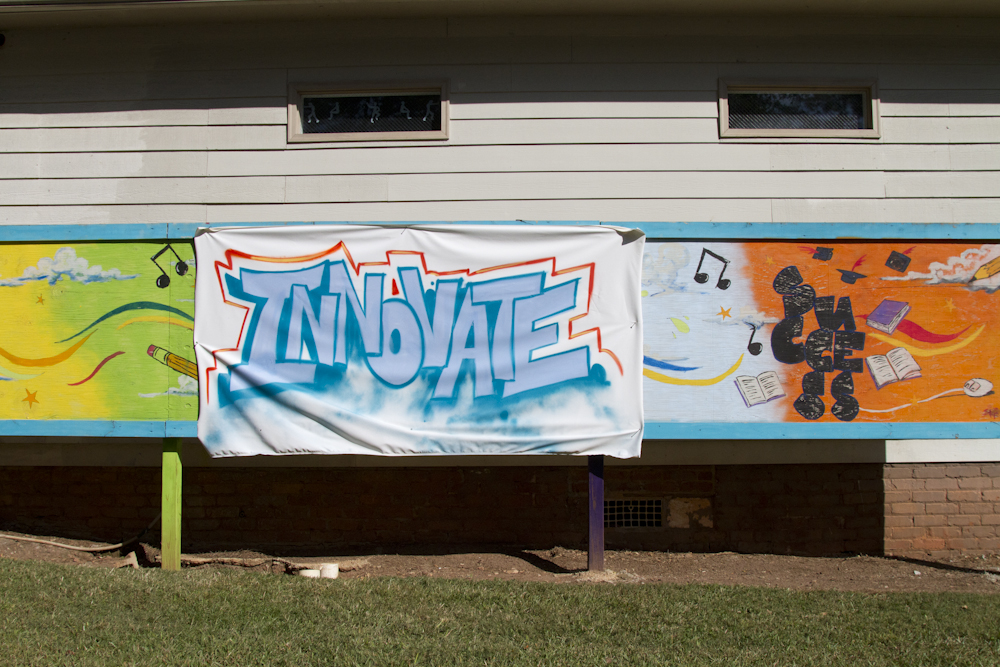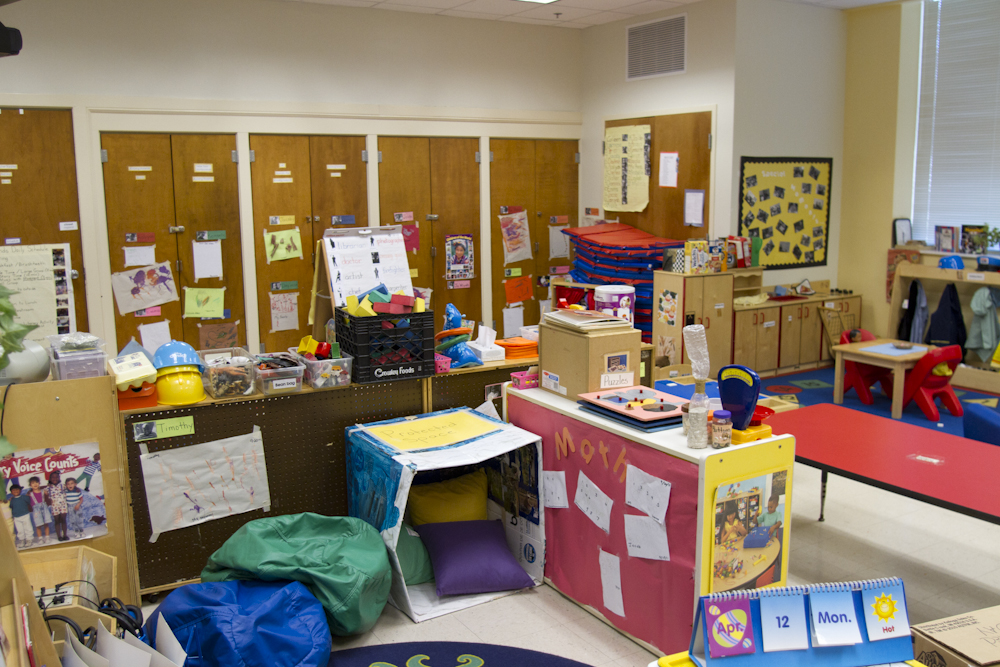
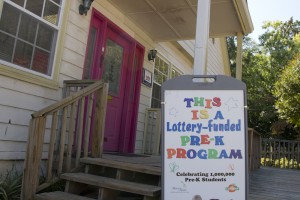 At a glance it can be hard to see the impact of the breadth of services offered by the Whitefoord Community Program (WCP) on the cluster of Atlanta neighborhoods they serve. The non-profit runs four health clinics in nearby schools, offers child development and pre-K services, after school programs, digital media training, summer reading and math workshops and even a Bike Rite health initiative.
At a glance it can be hard to see the impact of the breadth of services offered by the Whitefoord Community Program (WCP) on the cluster of Atlanta neighborhoods they serve. The non-profit runs four health clinics in nearby schools, offers child development and pre-K services, after school programs, digital media training, summer reading and math workshops and even a Bike Rite health initiative.
In a time of tight city and state budget, more and more municipalities are looking for ways to deliver services to the communities that need them. In Atlanta, one such program, the WCP, has been in place for years and could prove to be a model for the nation. Through grants and other funding the project has proven sustainable. Through community involvement it has proven useful and effective.
Look a little closer at the project and you’ll see the evolution of a community support system that weaves together family, health and education. What stated with a one-square mile area and a single health clinic in Whitefoord Elementary School on the east side of Atlanta more than 15 years ago has evolved into a system that reaches into a number of communities in that area of the city.
All of these services work in tandem from just about the time the child leaves the womb until he or she graduates high school with one goal in mind: providing the children of this inner-city community with the tools they need to complete their education.
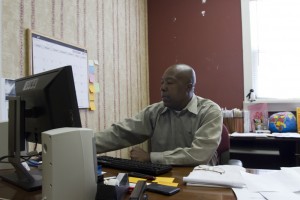
Clarence Jones, director of the WCP's Beyond School Hours program, has been with the organization since shortly after it's founding.
At nine weeks, infants can enroll, space provided, in the WCP’s Child Development program and start gearing up for their formal education. Unlike traditional daycare, this nationally accredited child development program employs HighScope Curriculum, a style of early childhood teaching and learning focused on active participation and educational development.
From there the kids can move on to the organization's pre-K programs, then once in grade school on into the Beyond School Hours program, summer math and reading workshops and others.
The WCP takes the community aspect of their title very seriously. When getting its footing back in the early 1990s the founders went door-to-door in the one-square mile area surrounding Whitefoord Elementary to survey the families and find out what services they needed most.
“I think our success, the success of the organization, was contributed to by the fact that we had one square mile that was focused on,” said Clarence Jones, Beyond School Hours Director with the WCP. “So two things that happened that cause our success, in my opinion, is one that we focused on a small area, and two is that we went to the community to determine what the community’s needs were. As a result we had a greater buy-in from the community.“
And the community really seems to have "bought in." More than half of the non-profit’s board members come from the community itself. Principals from the local schools that now house the four health clinics and a variety of the youth programs are asked to participate. The idea, Jones said, was to create a link between the schools and the households, between the educational environment and the community it educates.
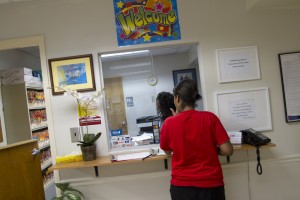
An adult community member receives services in one of WCP's school-based health centers.
Even the organization’s campus was built with the community in mind. After a lengthy drive around the neighborhood you’d probably still be hard pressed to find the buildings. Situated in a number of refurbished and renovated houses just across the street from Whitefoord Elementary, the WCP has made it a point to blend in.
The theory is that health is linked to education -- a theory much research supports. What started with that one clinic and a one-mile radius has blossomed to included two elementary schools, a middle and high school, taking the WCP well beyond their single mile.
What started with the simple premise of promoting health among inner-city youth has gone well beyond that, too. The clinics, while housed inside the schools, are full-service and open to members of the public regardless of age. The organization offers GED programs and parent counseling. Staff social workers pay home visits and actively connect those in need with the services available.
One of the most important aspects contributing to the success of the kids, Jones said, was involvement from the parents.
“The parent has to realize the impact that they have on their child. Without a true realization of the impact that they have on their children then there will be issues,” said Jones. “Now, parents don’t go to school to learn how to parent, so how do you get parents to understand what their impact is? You get them to understand what their impact is through involvement, through participation. “
And these programs and functions were all based on what the communities said they needed.
When the late George Brumley, an Emory pediatrician, started the initiative with the help of former student Veda Johnson the plan wasn’t to be in the community forever. The goal was to make the project self-sufficient and community run within a decade, but as things progressed the staff began to realize it would take “more like a generation,” according to Jones, before the necessary support structures would be in place.
Brumley has passed, but his impact lives on in the community he was dedicated to supporting. The street outside the Whitefoord Community Program's office is marked Georgia W. Brumley Way.
